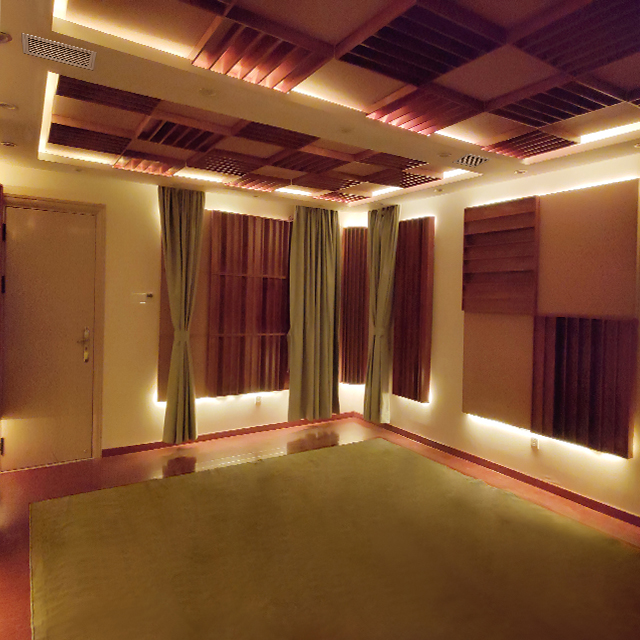A reverberation room is a laboratory space specially designed to create and control a specific acoustic or electromagnetic environment. It is divided into an acoustic reverberation room and a radio wave reverberation room according to the needs of different fields.
Acoustic reverberation room: In the field of acoustics, a reverberation room is a room specially designed for acoustic testing and research. Its interior has very low sound absorption characteristics, and the surface is usually made of smooth and highly reflective materials, making sound waves It can form a reverberant sound field through multiple reflections in the room. The reverberation chamber is characterized by a long reverberation time and even sound energy distribution in the room, which is suitable for simulating the sound propagation effect in real environments. Reverberation chambers are mainly used for:
Measure the sound absorption coefficient of the material
Test the performance of audio equipment such as speakers and amplifiers
Measure the sound power and spectral characteristics of the noise source
Perform reciprocal calibration of acoustic instruments such as microphones
Create an artificial acoustic environment with a specific reverberation time
Assess the effectiveness of noise control measures
For verification and research of acoustic parameters in architectural design
Radio wave reverberation chamber: In the field of electromagnetics, the radio wave reverberation chamber, also known as the radio wave anechoic chamber or electromagnetic reverberation chamber, is a closed shielded chamber with a high conductivity reflective wall inside, which can also form a similar The electromagnetic environment of an acoustic reverberation room. Radio reverberation chambers vary chamber boundary conditions via internally mounted mechanical stirrers or tuners to create a statistically uniform, isotropic and randomly polarized electromagnetic field suitable for:
Measure the absorption properties of electromagnetic waves
Electromagnetic compatibility testing (EMC) of wireless communication equipment
Analysis of electromagnetic reflection and transmission characteristics of materials
Electronic equipment radiation and sensitivity testing
Applications such as electromagnetic field environment simulation
Whether it is an acoustic reverberation chamber or a radio wave reverberation chamber, the purpose is to accurately quantify and study the propagation and absorption behavior of signals under controlled conditions in order to better understand and improve related technologies and products.

